PLOT DEVICES FOR SCI-FI / FANTASY WRITERS
T. E. Mark’s Blog
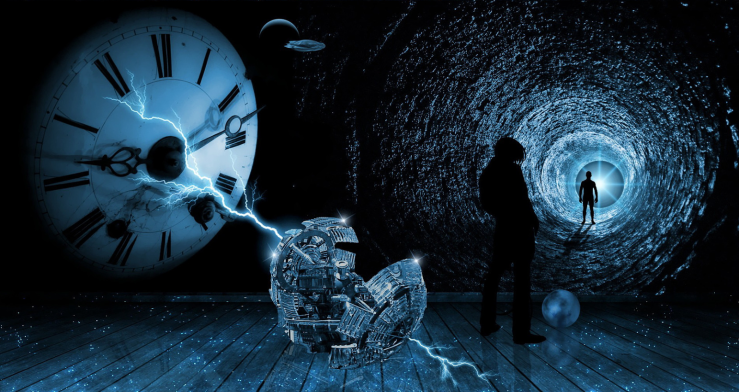
Time Travel
Time Travel in Science Fiction and Fantasy
Time Travel in Science
Time Travel Speculation
This is a new format I’m using, one which should allow you to evaluate some of the ways this device has been used in literature and film, then to gain a better understanding of the actual physics involved, learn of the present research, and finally to stimulate your imagination.
Time Travel in Science Fiction and Fantasy
Though Science Fiction, in western literature, may date as far back as the Sumerian ‘Epic of Gilgamesh,’ c2150 – c1400 BCE, the earliest Science Fiction works to employ Time Travel as a Plot Device appear to have begun in the 18th century with ‘Memoirs of the 20th Century,’ (1733) by Samuel Madden, ‘Anno 7603,’ (1781) by Johan Herman Wessel, and ‘Rip Van Winkle,’ (1819) by Washington Erving.
Later in the 19th century, we find such works as Charles Dickens’ ‘A Christmas Carol,’ (1843), Edwin Abbott’s ‘Flatland,’ (1880), Mark Twain’s ‘A Connecticut Yankee in King Arthur’s Court,’ (1889), and, of course, H.G. Wells’ ‘The Time Machine,’ (1895).
None of these early authors made any real attempt at a scientific explanation of Time Travel, except possibly H.G. Wells with ‘The Time Machine,’ in which he made vague references to the mysterious qualities of crystals. Crystals were a hot item back in 1895, and were, as I recall, grossly overpriced, barely unique, (just everybody had one) and typically ended up living out their lives as fashionable paperweights.
Time Travel science, in Sci-Fi and Fantasy
Early
Little or none. Most fall into the realm of Fantasy Fiction and generally ignore anything akin to a plausible scientific explanation for how their time travel works. It just does.
Whether it was Ebenezer Scrooge taking hold of the Spirit’s robes in ‘A Christmas Carol,’ or Edward Page Mitchell’s ‘The Clock That went Backward,’ time travel just worked and generally yielded good results.
Things changed, however, after 1905 with Einstein’s theories of Relativity, which have since dominated the proverbial field of Sci-Fi / Fantasy Time Travel in lit and film.
More Recent
Relativity – Travel faster than light and somehow you end up going either ahead or back in time.
The books and films using relativity are endless, and almost always get it wrong. NOTE: There is nothing in Relativity (in either theory, General or Special) indicating FTL (Faster Than Light) speed will get you to the past or future. Relativity simply states that the faster you travel, time, for you, will slow down.
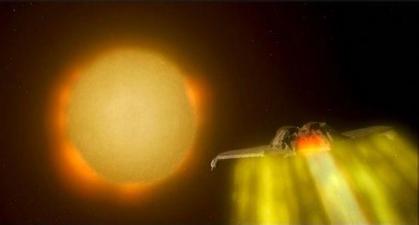
A fine example of this exploitation of Relativity in Sci-Fi was when the crew of the Enterprise, in ‘Star Trek 4: The Voyage Home,’ pulled off a nifty slingshot around the sun in order to reach FTL (Which, they were already able to do anyway via warp drive) thus allowing them to buzz on into San Francisco in 1980 to nick a couple of Humpbacked whales.
I actually love this film, by the way, mainly due to the meaningful statement. I even enjoyed the special effects involved with the slingshot – sun manoeuvre. There are times when you just have to allow art to defy your intellect and enjoy yourself, you know?

I would like to award credit here to the early ‘Planet of the Apes,’ film for getting this one right. Charlton Heston and his mates did indeed travel FTL on a deep space mission, during which, time for them slowed to a crawl, but the Earth sprinted along into a whacked-out, post-apocalyptic future with apes now calling the shots. When Heston and Co. returned, he and his mates had only aged a few years, whereas the Earth had aged centuries.
Worm Holes – (Also Traversable Wormholes.) Pop into one side of this purely theoretical spatial anomaly in 2017, travel rather ludicrously through something vaguely resembling a satanic waterslide, then pop out sometime in the past or future.
Since Carl Sagan’s ‘Contact,’ in 1985 (Film version starring Jodie Foster in 1997), wormholes have certainly grabbed their fair share of the Time Travel plot device market.
Problem. Wormholes, in the real universe, have nothing whatsoever to do with time travel. If they exist, and they very well might, they would simply be a bridge between one location in space and another, allowing something like a toaster oven or space ship to travel really far (like inter-galactic far) in a very short amount of time.
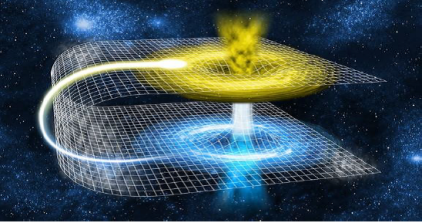
This is a nifty device for Science-Fiction, and should certainly be explored, but I question its use as a Time Travel device.
Time Machines – Simple. Make a time machine. Make it big and highly technical-looking. (‘Twelve Monkeys,’ Terry Gilliam) Make it small and rather simple. (‘The Clock that went Backward,’ Edward P Mitchell) Make it classy. (‘The Time Machine,’ HG Wells) Make it unique. (‘Millennium,’ John Varley) Make it a DeLorean. (‘Back to the Future I-II-III’) Or, simply make it a phone booth. (‘Dr Who,’ also ‘Bill & Ted’s Excellent Adventure.’)
However you make it, do it in a secret lab to keep it, you know, secret, make it loud, add really bright lights, add eerie, growing, grinding, pulsating music, (This is critical for it to function properly) and offer the most convoluted implausible explanation, if you even care to, of how it works.
Hop in, or on, wave to George Carlin, and… ‘Party-on, dudes.’ Oh, and one rather vital safety tip. Do take along extra matches if there’s even the slightest indication Morlocks will be involved.
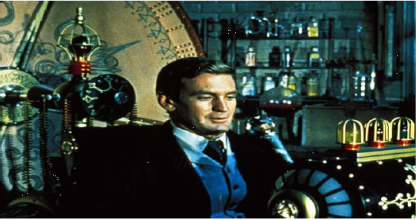
Belief and Hypnosis – ‘Time and Again.’ Jack Finney. Neat story. Rather clever time travel device. Basically, convince someone, in this case, Simon Morley, a military test subject, he has in fact travelled in time, and he will, if he’s been adequately brainwashed, actually have travelled in time.
It works well in the book and isn’t relativity or wormholes, thus I applaud the creativity. The human mind is complex. There is every reason to dip into the realm of consciousness time travelling in Sci-Fi and Fantasy fiction.
Rare, but thoroughly implausible, disease – ‘The Time Traveller’s Wife.’ Audrey Niffenegger. Nice story – heavy on the romance – well-paced, and again, no relativity or wormholes. I actually liked this book and the later film version regardless of the lack of plausible science. Henry and Clare are well-described, and I honestly found myself hoping Henry’s DNA would right itself for the nice couple to live happily ever after.
Rewinding time by flying backwards around the Earth – ‘Superman: The Movie.’ I’m going to hold my comments on this one, essentially to avoid sounding overly critical of this totally absurd and tragically ridiculous Time Travel device. (Maybe if it ever finds its way into print, I’ll read it and try like hell to find within some redeeming value.)
Time displacement equipment – ‘The Terminator series.’ As I tend to view the Terminator series as shoot-em-up Arnold Schwarzenegger action films rather than Science Fiction, I admit to finding the time travelling the only parts I truly enjoyed. (I’m presently suffering through a period of anaesthesia to special effects. It’s been going on for over a decade and I see no end in sight. Pity.) The Gyroscopic device was acceptably elaborate, and I found only one real problem with it. A bit of a personal thing, really. Couldn’t they send a naked girl through now and then just to mix things up a bit?
The old Rocket Sled – ‘Time Cop.’ Somewhat creative. Race a sleek, heavy on the techno-gizmo-contraptions at a wall at some insane speed, and if it doesn’t hit the wall smashing you and the sled into molecular sized goo, you land somewhere in the past of future. Nothing scientific going on here. And, though sub-text, I got a slight whiff of relativity when I saw it.
Pure Fancy – Even recent authors have simply chosen to ignore a quasi, pseudo, psycho-irrational attempt at a scientific explanation in Sci-Fi / Fantasy Lit. Hermione’s time turner in ‘Harry Potter: The Prisoner of Azkaban,’ (J.K .Rowling) seemed to work well enough, and Dr Who’s (and dare we forget Bill & Ted’s) phone booth continues to defy any and all known physical laws governing the universe.
In cases like these, I tend, like most people I believe, to disregard the requirement of a device having even a weak basis in science, and just enjoy where the writer takes you once the travelling has occurred.
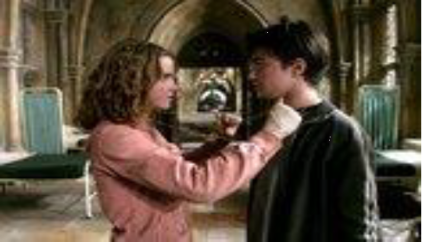
A few other notables
‘A Wrinkle in Time.’ Madeleine L’Engle. (1962) No science. Something called a Tesseract performs the Time Dilation. Great writing – nifty story – wonderful for younger readers. (I loved it!)
‘Slaughterhouse Five.’ Kurt Vonnegut (1969) No scientific explanation offered. A man randomly slips through time and space – usually Dresden during WWII, but also with pit stops in the future and on the planet Trafalmadore. One of my absolute favourites. Few, if any, writers use words like KV, and who can argue with a fiction piece that opens with ‘All this happened, more or less?’
‘The Time Traveller’s Wife.’ Audrey Niffenegger (2003) (Film version 2009) No real science, but a laudable attempt at a medical/physiological one. A genuinely decent fellow with a rare genetic disorder, (Chrono-something-or-other, as I recall with absolute precision) unpredictably travels in time, living his life out of sequence. Causes his wife headaches. Makes planning dinners rather difficult, and messes up more than one nice get together with friends.
Time Travel Potential & Paradoxes
As noted above, early, and even more recent, Time Travel works offer very little in the way of solid science leaning almost entirely on the profound value, or potential disasters, from messing around with time.
A few examples:
Altering the future – by travelling to the past and changing something.

This one was used early and has obviously stood the test of time. From ‘Back to the Future,’ to ‘12 Monkeys,’ writers are continually trying to correct the world’s little blunders (wars, catastrophes, manmade plagues, bell-bottoms) using Time Travel. (I’ve actually used this one myself in my breath-taking novel: ‘Fractured Horizons. A Time Travel Odyssey.’
The terms often used are Altered Timelines, or altered Time Continuums.
Stopping something bad from ever happening
Travel into the past by, (hell, I don’t know – or even care since the writers don’t,) kill the bad guy who is about to do something really bad, which will pretty much wipe out the world, usually for some ludicrous, but thoughtfully mysterious, reason which only he knows about, then get your ass back to your own time to see if things have actually improved.
There’s always a snag or two or three or four, depending on the length of the book or film and how many sequels are planned, but generally everything works out in the end. Except when it doesn’t.

Time Travel Paradoxes:
Without the availability of hard physics to bore readers with, even if they wanted to, and I’m certain they do or did, writers typically spend an inordinate amount of time delving into the critical paradoxes involved with travelling, usually back, in time. Messing with the future seems to have few, if any, perilous consequences, and I have yet to find a story that took into consideration the fact that even the future is someone else’s past. (Give yourself a moment with that one.)
Meeting yourself: Paradox One
This is typically bad. And almost always yields the same result. World, or something close to it, annihilation. Localised, surreal explosions. Or, getting busted by friends of family for hanging out with yourself having obviously been messing around with time travel. I’m still looking for that Time Travel novel in which meeting yourself in the past is actually a good thing. Now that would be creative.
Meeting your parents: Paradox Two
This is very similar to the above paradox but is just a tad more paradoxical. I mean, look! I know it’s fiction. I write fiction. Science-Fiction. But how can one NOT question travelling back in time and meeting your parents before they even had you? Because, if you were never born, how the hell did you grow up and decide one morning, perhaps afternoon, maybe early evening, after supper, to invent a time machine and take it for a spin? It’s just… you know… inconvenient.
Changing things in the past, thus creating an alternate timeline – typically one in which you don’t exist. Paradox Three
This one can be good or bad, depending on a tragically arcane set of details which typically make sense only if you consciously decide to let them.
Personally, I have never put down a Time Travel novel, or left a cinema, where I haven’t stopped and said something rather intuitive like, ‘Wait a minute! How the hell could a guy go back and…. etc… if he was never… etc… it just doesn’t make any…. etc’
Needless to say, one needs to freeze, or like hide in a drawer, the critical thinking side of their brain when diving into that new Time Travel story, or when heading off to the theatre with friends for that new cinematic Time Travel adventure.
Paradox four: Meeting and killing your grandfather.
The Grandfather Paradox, the most quoted in actual science, by-the-way, just kills me. For one thing, which bango banana-head would kill his grandfather, to begin with? And why would one choose to do so in the past knowing the fatal outcome for, not only your grandfather, but your father or mother – sisters and/or brothers – you, and… your grandmother?!
Time Travel in Science
In pouring through a vast number of related articles, physics texts, and relic copies of Popular Science, the Journal Nature and People magazine, one comes away with very little in the way of hard science in support of this concept.
Let’s take a moment to explore the prevailing theories and current research, and see if we can pull from them a few ideas for future plot devices
The Current Research
Relativity – Though Einstein’s General and Special Theories of Relativity have been around for a while, (since 1905, to be precise) they were so ahead of their time they still seem to fall in with the realm of what we call current research.
In a nutshell: Time is relative to the observer. If you could travel FTL, (Faster Than Lightspeed,) though time would seem to progress normally for you, time for those you left behind, slugging along on Earth, would experience time differently. They’d age faster than you did while you were travelling superluminal.
Your return, after even a brief journey, (to you) would be stimulating. Disturbing, may be a better description.
Everyone you ever knew could be long dead and buried. Or at least really old. The Earth could be a total nightmare. Or worse – it could be just as it was when you left it. As in NOW. (Please. Do take a moment to absorb this one.)
Time Dilation – This goes along with Relativity – I merely thought, you, the esoteric Sci-Fi / Fantasy reader and writer, should have this term in your tool-chest.
It simply describes someone or something bopping in or out of their present time-continuum.
Traversable Wormholes – The theory here is thoroughly comprehensible. There are only two problems I feel worth mentioning. One. To gain even a modest understanding of traversable wormholes you will need a PhD in Theoretical Physics, and two, as I stated earlier, they have nothing whatsoever to do with Time Travel.
Space-time – A four-dimensional universe, with the three spatial dimensions: Length, Width, and Height, and Time. All woven together like a patchwork quilt. This one is obviously tied in with Relativity. If you travel FTL (Faster Than Lightspeed) time, for you, will slow down RELATIVE to those you left behind.
Time Travel research – The heavy stuff
Does Time Exist – Before you plan that next voyage into the past or future, you’ll probably want to confirm that time truly exists. There’s actually more to this than you may think. For one thing, time on Earth is sliced up according to the Earth’s rotation about its axis and its orbit around our star.
So, what exactly does that mean to someone travelling in deep space? Where there is no spinning planet or star? Does time still exist in outer space? And if so, how exactly does one measure it? Perhaps there is no time in outer space.
Imaginary Time – Extremely esoteric stuff, but certainly worthy of inclusion in a piece about Time Travel.
When we consider good old, home-grown time, we picture a horizontal line. (See below) The negative numbers to the left of zero representing moments in the past, and those to the right, moments in the future.

If we construct a vertical timeline to plot Imaginary time, we have a mathematical construct that is not restricted by physical realisation. We, theoretically, CAN travel forward and back in Imaginary Time. It’s just so bloody theoretical and difficult, if you know what I mean.
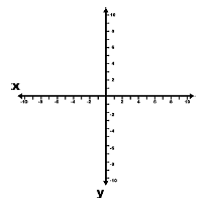
A worthy quote about Imaginary Time.
‘One might think this means that imaginary numbers are just a mathematical game having nothing to do with the real world. From the viewpoint of the positivist philosophy, however, one cannot determine what is real.’
Stephen Hawking
(I’m still working on this one and plan to discuss it with Stephen the next time I see him.)
The Past and the Future are equally real – This will certainly elicit a debate, and is therefore, ideal for use in a Time Travel novel. ‘Is the future set?’ ‘Is the past set?’ If so, then wouldn’t this preclude the possibility of Time Travel? But then, if you did pop in to watch the Pope crown Charlemagne, or the Vandals sack Rome, maybe you were supposed to. As in, maybe you actually did already?
General and Special Relativity –(regarding Time Travel and Time Dilation) Time and movement are relative to the observer.The faster you travel, time tends to move more slowly. For you, the traveller.
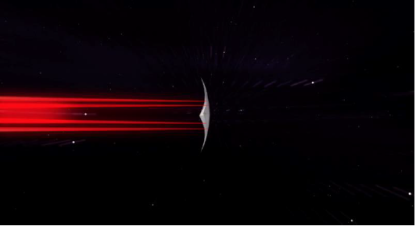
Everyone Experiences Time Differently – This is a very deep concept, but does open up a doorway to some creative time travel plot devices.

You are presently living in the past – Our conscious brain takes time to assemble information. Everything you do, think, touch, feel, etc happened about 80 milliseconds before your mind was able to assemble the data. Therefore, in a way, there are two, not three, time conditions. The past and the future. There just isn’t a present condition worth mentioning.
Consciousness depends on our ability to manipulate time – Consciousness wouldn’t be possible without the ability to imagine other times. This takes us back to an earlier conversation where we questioned the very existence of time. (Is it real or is it simply perception. I’d sure like to make a claim for perception here, simply because being 17 or 18 again looks really swell right now.)
Disorder increases as time passes – Ever hear the term Entropy? The 2nd law of thermodynamics? No? Then let’s pass on this one.
Time Travel Speculation
Clearly, the plot devices associated with Time Travel in fiction and fantasy have been overused. However, this hardly means we need to abandon using TT in our novels. It just means we need to work harder at offering our readers (and those illusive Literary Agents) something new and creative.
Here are a few of my own ideas drawn from the material above
Consciousness Time Travel – Our minds are complex. Perhaps our thoughts are not restricted by time. eg When I dream, I’m typically 12. Maybe 15. Perhaps our thoughts can be transferred to another being. Perhaps into the mind of someone in the future. The past?
Muti-dimensional space – We still don’t fully understand the universe. Gravity – simple old gravity still baffles us. Could space hold additional dimensions? Could space itself possess alternate timelines all running parallel to ours? Could we one day cross into one of these alternate timelines? If so, what would it look like? And, could we use it for travel? Like… Time Travel?
Flaws in space-time – Since space and time are woven together like a quilt, what would result from finding, or creating, a flaw in that quilt? Could we use it to get to another galaxy? Another time?
Accelerating our body clocks – What if we could change the pace at which we perceive time with Neuro stimulants. If we were moving more quickly through time, would we be able to observe and explore things others haven’t? Wouldn’t we essentially become biological time machines?
Remaking time – If time is a property of space as we all accept at this point, could we one day discover a way to manipulate space to fit our needs? Our desires? Could re-working space-time itself be the answer? We’re manufacturing artificial wormholes in laboratories. Could we one day be manufacturing time warps? Time warps large enough for a space ship and crew?
To Sum up:
I’ve covered a lot in this issue. Trust me, with the data I’ve amassed preparing for this, I could have taken us well into the future. Literally. Without a Time Travel device. I’d like to end with a brief series of hypotheticals.
Changing the future from a point in the past – If we were able to travel back in time, could we effect changes to our future? Could we convince the Manhattan Project team NOT to create an atomic bomb? Could we introduce solar and wind power during the industrial revolution, and warn people about burning fossil fuels? Could we pop into Europe in 1347 with a Time Machine full of antibiotics and a medical guide for treating the Bubonic Plague?
What would result from these changes?
If we were to assume that our past and future are already written, static and unchangeable, and equally real, one could make a strong case that our intrusion, and meddling outside our present timeline would already be ‘in the books,’ so to speak, and there would be no detrimental effects from our interference.
Could we, then, if we found the answer to Time Travel, effect fundamental changes to the past thus altering the future? And, if so, which ones would you consider changing?
I’ve specifically enjoyed writing this issue of my PLOT DEVICES FOR SCI-FI / FANTASY READERS AND WRITERS, and hope you’ve been at least modestly, if not entirely, enriched, intrigued and entertained.
If my work pleases you, consider sharing this with your networking pals and maybe picking up one of my six recently published novels:
‘Love in the Time of Apocalypse’ (Published – June 2017)
‘Alina’ (Published – May 2017)
‘Never a Sun Rises’ (Published – April 2017)
‘Fractured Horizons: A Time Travel Odyssey’ (Published – Jan 2017)
‘…but then, why Mars really?’ (Published – Dec 2016)
‘AHNN’ (Published – Oct 2016)
T.E.Mark
T.E.Mark is a Science Writer, Author, Language Teacher and Violinist. He has written novels for young and adult readers and continues to write science articles for national and international magazines.
[…] it to yours. Anyone with an interest in the science, lack of science, and ramifications and consequences of time travel will have a delightful romp through the history of literature with this post. Highly […]
LikeLiked by 1 person
Thanks for the review of my post.
Glad you enjoyed it!
TE Mark – Writer / Screenwriter
LikeLike
T.E. – I claim to have used a legitimate time travel mechanism in my sailing e-novel “The Edge of Time”. A few years ago – December 21, 2012 the Mayan calendar ended and according to their beliefs, so did the world – or at least cataclysmic events happened around the world – earthquakes, floods, etc. and maybe time travel. On a sailing cruise to Tahiti, my characters happened to be in mid-Pacific at GPS Lat/Lon coordinates that exactly matched the time and date 12/21/12. A giant wave helped push them to their destination and they arrived Papeete 200 years earlier – shortly after Captain Cook’s voyages. Of course love stories ensued and when it was time to end the adventure the crew re-locates the exact same coordinates and recover the 200 hundred, but with Tahitian passengers, a pregnant daughter and a missing mate – ending with several people in the wrong time and a desire to return to old Tahiti to correct the intended mix-up. My problem now is – to write the sequel, what time travel mechanism can I logically use to return to that exact time frame? Any ideas?
Dan Feltham, Author ‘www.dansstories.com’.
LikeLike
All I can say now it WOW – even trying to wrap my brain around all that is painful and how long did it take you to compile and write? Unless of course the joke is on us and you stopped “time” to complete it.
A couple of notables, you mentioned about meeting one’s self and putting a positive spin on it, sounds like a good idea for a book. Have you seen “The One?” perhaps not time travel per say, but the multi-dimensional leap, where the “one” bad guy hops to all the alternate universes to kill “himself” because, with each “one” that dies, he absorbs their energy…I loved it, but I’m also an action buff.
And I wish you could sit with me through Interstellar (please tell me you’ve seen it) the conversations would last longer than the movie.
Lastly, just for fun, I mostly enjoy laughing, and Big Bang Theory is one of my weekly pleasures. If you do not watch – this was a blip of a conversation about the timelines and reality of Back to the Future – so I’m sharing because it popped in my head as I was reading your blog, and I hate laughing alone.
Sheldon: I’m going with it. Marty and Doc never had have had brought the time machine to 2015. That means 2015 Biff could also not had have had brought the Almanac to 1955 Biff. Therefore, the timeline in which 1955 Biff gets the Almanac is also the timeline in which 1955 Biff never gets the Almanac and not just never gets: never have, never hasn’t, never had have hasn’t.
LikeLiked by 1 person
Hello Theresa,
I already had most of the research material, but the actual writing took two very long nights. Like, till dawn, long nights.
As for ‘The One,’ the plot sounds super. I believe I’ll do a little research. Maybe drop by someone’s house, who owns a TV, and view it. I’m an adult going back to school guy living in blissful barbarism. Shared housing. Room with a bed and a desk. Oh, and a chair. All the necessities of life. Ahhhhhhhhhh!
No, BTW. I have yet to see ‘Interstellar,’ but wanted to. I typically see my films at the cinema, and if I miss one, for some ludicrous reason, as in this case,
it takes a while for me to effect a remedy.
I see your email above. Once I do see ‘Interstellar,’ I’ll shoot you my thoughts. I’d enjoy the conversation.
Finally, Yes! The Plot holes were flagrant and many in the Back to the Future films. It’s actually fun to see them, digest and enjoy them, then set about ripping them to shreds for the Time Travel errors. Hopefully, we’ll have the chance to chit-chat in the ‘future.’ (If it exists)
Take care, and I’m really pleased you enjoyed my recent blog issue. Stay tuned: The next one should be fun, though I’ve yet to begin the research: ‘Artificial Gravity’ I have some pretty good ideas.
TE Mark
LikeLike
Congrats on the return to school! Yes “the One” is a fun action packed flick, if you get the chance check it out. Seriously email me if you’re going to watch Interstellar and I’ll watch it again to be fresh.
http://www.imdb.com/videoplayer/vi3656843545?ref_=tt_pv_vi_aiv_1
LikeLiked by 1 person
Thanks, Theresa! And, will do. I’ll buzz you with an email soon as I’d like to see both – especially ‘Interstellar.’
An after-film chat will be fun.
TE
LikeLike
Well, I am not getting paid for it yet but that isn’t the goal. Being an actual writer is my goal & that is what I am doing. It’s a win! Thanks, TE!
LikeLiked by 1 person
Well, good luck. May the Gods of Literary Prosperity shower you with a smattering of their wealth. (Kind of a ‘Trickle-down-theory’ blessing.)
What you’re doing is awesome. Let’s stay in touch. I’ll share your posts whenever I get them. And when that book comes along, I’ll review it and post the review at my dedicated website for book reviews. And everywhere else, of course.
Take care.
TE
LikeLike
Thanks, TE for the encouragement. I also expect an option for one of your works on the near future.
LikeLiked by 1 person
Deal!
I’ll be looking for your next blog issue.
LikeLiked by 1 person
Admittedly I did not have enough “time” to read through the entire post, I was enjoying it. The only time I believe can be traveled is the different time zones around the world. The past is gone and tomorrow doesn’t exist, so no matter what the nerds want to think it will never happen. So I thoroughly enjoy whatever crazy schemes people come up with to entertain our fantasies. And in honor of all your hard work, I will come back later to finish reading this as soon as “time” permits. I also will have to add to you my reading list. I do like your style 😉
LikeLiked by 1 person
Thank you, Theresa.
The positive feedback is greatly appreciated.
I’m quite in agreement with you, BTW. When you reach the ‘Time Travel in Science’ section, you’ll find that, well, there really isn’t a whole lot of
solid physics to support TT. I, like you, however, love the device in fiction – if it’s used well and creatively.
The final section, ‘Time Travel Speculation’ is a brief assortment of my own ideas. I hope you have ‘Time’ to drop further comments on those along with your reading list. I’d like to compare it to my own. See if there’s anything I may have missed.
Take care, and see you around Net-world.
TE
BTW: Already in the works is a new issue: ‘Artificial Gravity’ (This one should be fun)
LikeLike
Reblogged this on T.E. Mark – Author.
LikeLike
TE this was a great article. You definitely spent time thoroughly researching TT. I was struck by the fact you didn’t mention Doctor Who. Many episodes have dealt with fractures in time. I am thinking in particular of the final episode with Matt Smith. The rift actually appeared as a hole in the sky.
Wormholes being used as TT devices drive me nuts. The wormwhole is a means to an end of getting from point A to point B making interstellar & intergalactic travel possible.
Thanks for putting together this primer that should be used as a point of reference for anyone interested in sci fi writing.
LikeLiked by 1 person
Thanks, Susan, I’m with you. The Wormhole thing kills me. As I said in my article, (which was way too long, BTW, I get wordy sometimes,) Wormholes and Relativity have been so overused it’s like hearing the same joke over and over again, told by someone you barely like in the first place, but you’re too kind to tell them how bothersome they are, so you smile and put off barfing your guts out until later.
Another BTW: I read your opening page and was really impressed. I like your sense of humour. I wouldn’t call you a Woman on the Ledge, though. I think I’d go with, ‘ a chick with wit.’ Which is like the best compliment I can launch. So….. there. Thanks again for the support. One More BTW (I did mention Dr Who in my TT post, along with Bill & Ted’s Excellent Adventure)
See ya round networld!
TE
LikeLiked by 1 person
Thank you, TE! I missed Doctor Who but did see Bill & Ted. My apologies. I shared your blog on TT with G+ & it has gotten positive feedback!
LikeLiked by 1 person
You’re awesome, Susan. Thank you!
(And coming soon to a computer near you is ‘Artificial Gravity’ – my next issue) I’m going to use the same format as TT, but try to
shorten the article. This one should be fun.
Thanks again for sharing my work.
In reading at your site, I was pleased to learn that you are in fact making it as a full-time writer. Good for you!
Talk again soon!
TE
LikeLiked by 1 person
[…] Source: Time Travel […]
LikeLike